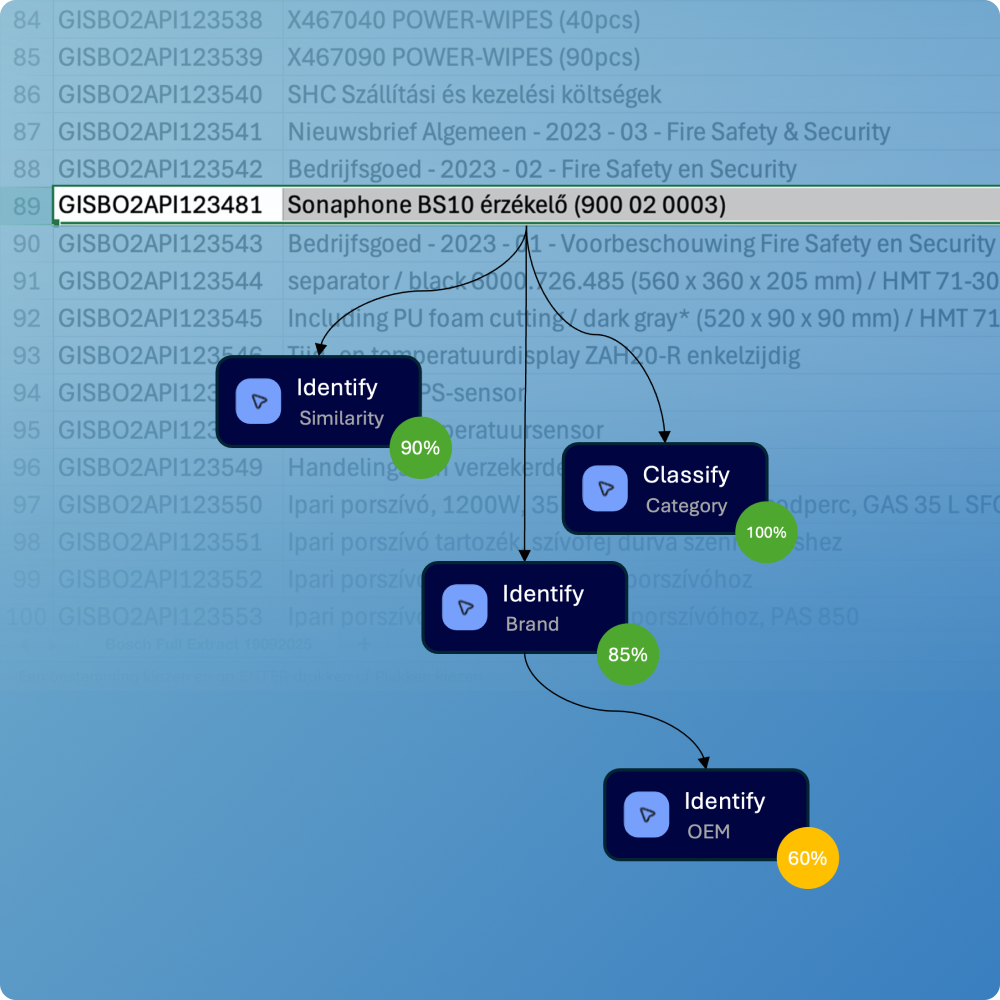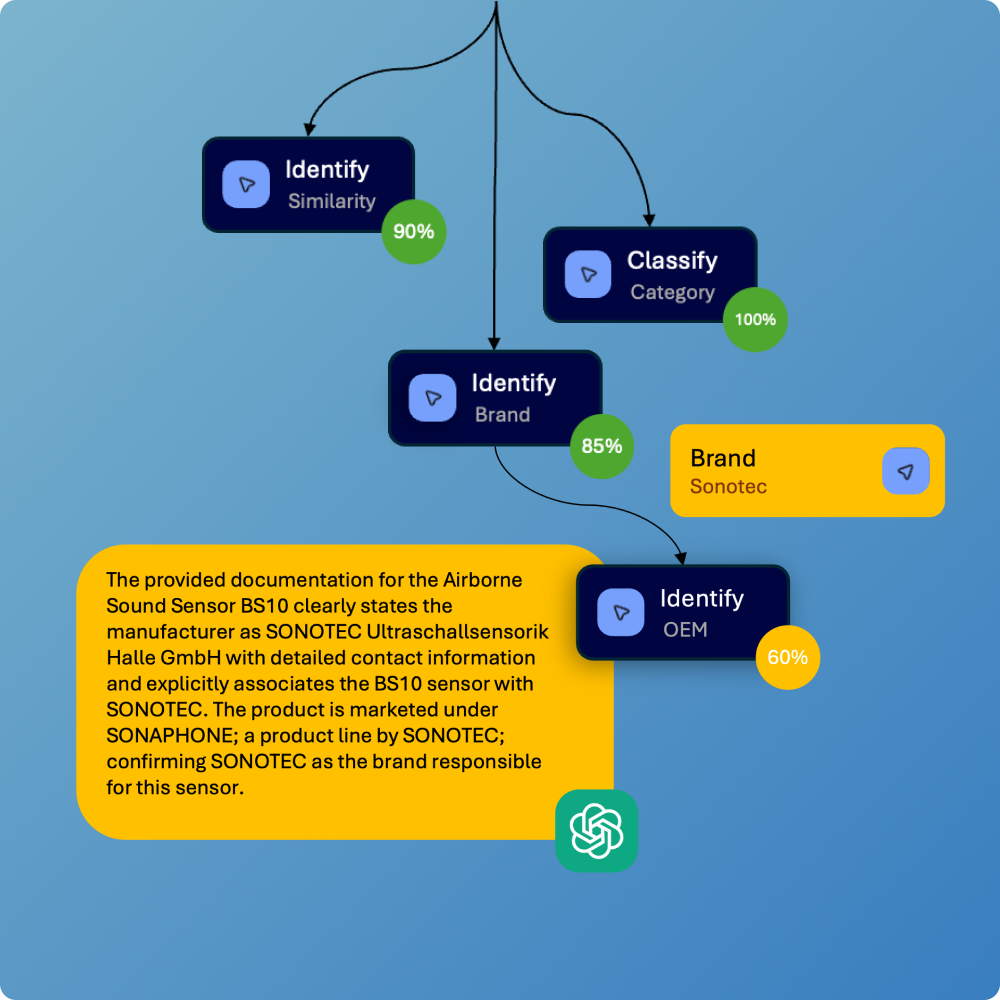GIS International faced slow, manual procurement processes. Faktion delivered an AI-driven sourcing solution, automating data extraction and classification to accelerate sourcing and empower strategic vendor negotiations, significantly reducing time-to-market and procurement costs.

GIS International specialises in sourcing C-class items (materials that companies need but rarely prioritise). Their business model hinges on aggregating customer requests, standardising item descriptions, categorising items, and negotiating bulk deals with distributors.
Operational sourcing teams handle incoming customers' order requests by processing and categorising them, ensuring customer demands are met with exactly the right products from the best vendors. Then, the strategic sourcing team leverages this categorised data, consolidating procurement volumes across multiple customers and locations to negotiate better pricing, select optimal vendors, and reassess previous vendor choices.
The operational sourcing process was extremely time-consuming due to the hurdles they faced:

By integrating operational and strategic sourcing through systematically curated, structured data, GIS creates a self-reinforcing flywheel that enhances both operational responsiveness and strategic decision-making.

To address these challenges, GIS partnered with Faktion to develop DIANA™, a robust, AI-powered system that combines classical machine learning (supervised ML) techniques with generative AI (LLM based). This hybrid solution automates the most labour-intensive parts of the sourcing process. The system consists of the following components:
Turns messy spreadsheets into clean, structured data using AI that recognises brands, product types, and part numbers, giving teams full visibility into what they’re buying.
LLMs explain and justify classifications, connect items to verified sources, and recommend relevant vendors so sourcing experts can act fast and with confidence.
Feeds clean data directly into Power BI dashboards, revealing instant sourcing opportunities and driving smarter, faster procurement decisions.

Turns messy spreadsheets into clean, structured data using AI that recognises brands, product types, and part numbers, giving teams full visibility into what they’re buying.

LLMs explain and justify classifications, connect items to verified sources, and recommend relevant vendors so sourcing experts can act fast and with confidence.